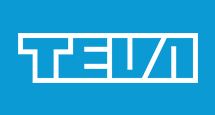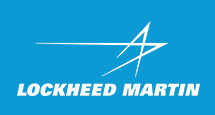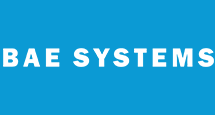Visiongain Publishes Hydrogen Fuel Cell Vehicles (FCVs) Market Report 2023-2033
31 May 2023
Visiongain has published a new report entitled Hydrogen Fuel Cell Vehicles (FCVs) Market Report 2023-2033: Forecasts by Technology (Proton Exchange Membrane (PEM), Alkaline Fuel Cells (AFCs), Solid Oxide Fuel Cells (SOFCs), Direct Methanol Fuel Cells (DMFCs)), by Vehicle Type (Passenger Cars, Commercial Vehicles, Material Handling Vehicles, Military Vehicles, Other), by Component (Fuel Cell Stack, Hydrogen Tanks, Battery, Electric Motor, Power Electronics, Other) AND Regional and Leading National Market Analysis PLUS Analysis of Leading Companies AND COVID-19 Impact and Recovery Pattern Analysis.
The global hydrogen fuel cell vehicles (FCVs) market was valued at US$9.32 billion in 2022 and is projected to grow at a CAGR of 15.8% during the forecast period 2023-2033.
Environmental Concerns and Decarbonization Initiatives
As the world grapples with climate change and seeks ways to reduce greenhouse gas emissions, there is a growing emphasis on decarbonizing the transportation sector. Hydrogen FCVs offer a viable solution as they produce zero tailpipe emissions, contributing to cleaner air quality and mitigating the impact of transportation on global warming.
Energy Diversification and Reduced Dependence on Fossil Fuels
The hydrogen fuel cell technology enables the use of hydrogen gas, which can be produced from a variety of sources, including renewable energy (e.g., solar, wind), natural gas, and biomass. This diversification of energy sources helps reduce dependence on finite fossil fuels and enhances energy security, making FCVs an attractive option for governments and energy policymakers.
How has COVID-19 had a significant negative impact on the Hydrogen Fuel Cell Vehicles (FCVs) Market?
The COVID-19 pandemic has had a significant impact on various industries worldwide, including the hydrogen fuel cell vehicle market. Here are some key observations regarding the impact of COVID-19 on this market:
The pandemic initially had a negative impact on the hydrogen fuel cell vehicle market. The global lockdowns and restrictions imposed to curb the spread of the virus resulted in disruptions in the supply chain, manufacturing, and distribution of hydrogen fuel cell vehicles and their components. Production slowdowns, factory closures, and logistic challenges led to delays in vehicle deliveries and hindered market growth.
The reduced economic activity and uncertainty caused by the pandemic affected consumer purchasing behaviour, leading to a decline in demand for hydrogen fuel cell vehicles. The high cost of these vehicles compared to conventional alternatives further limited their market penetration during the challenging economic conditions.
However, the pandemic also highlighted the importance of sustainable transportation and the need for zero-emission vehicles to combat climate change. Governments and organizations increasingly recognized the role of hydrogen fuel cell vehicles in achieving decarbonization goals and promoting green recovery. This recognition resulted in various stimulus packages, incentives, and policy support to encourage the adoption and development of hydrogen fuel cell vehicles.
How will this Report Benefit you?
Visiongain’s 331-page report provides 112 tables and 177 charts/graphs. Our new study is suitable for anyone requiring commercial, in-depth analyses for the global hydrogen fuel cell vehicles (FCVs) market, along with detailed segment analysis in the market. Our new study will help you evaluate the overall global and regional market for Hydrogen Fuel Cell Vehicles (FCVs). Get financial analysis of the overall market and different segments including vehicle type, components, and technology, and capture higher market share. We believe that there are strong opportunities in this fast-growing hydrogen fuel cell vehicles (FCVs) market. See how to use the existing and upcoming opportunities in this market to gain revenue benefits in the near future. Moreover, the report will help you to improve your strategic decision-making, allowing you to frame growth strategies, reinforce the analysis of other market players, and maximise the productivity of the company.
What are the Current Market Drivers?
Increasing Government Support and Investments for Hydrogen Fuel Cell Technology
The increasing government support and investments for hydrogen fuel cell technology are major drivers for the growth and development of the industry. Governments around the world are recognizing the potential of hydrogen fuel cells as a key solution for reducing greenhouse gas emissions and achieving their climate targets. As a result, they are committing significant resources towards the development of the necessary infrastructure, regulations, and incentives to support the growth of the industry.
For example, the European Union recently announced its ambitious "Fit for 55" package, which includes a series of measures to reduce emissions by 55% by 2030, compared to 1990 levels. One of the key elements of this package is a proposal to promote the production and use of clean hydrogen across the EU, with a target of 40 GW of renewable hydrogen electrolysers by 2030. The EU has also committed €2 billion in funding for clean hydrogen projects as part of its Innovation Fund.
In addition, many national governments are also increasing their support for hydrogen fuel cell technology. For example, the Japanese government has set a target of achieving 800,000 fuel cell vehicles and 900 hydrogen refuelling stations by 2030, while the Chinese government is aiming to have 1 million fuel cell vehicles on the road by 2030.
Growing Demand for Alternative Energy Sources and Cleaner Transportation Solutions
The increasing demand for alternative energy sources and cleaner transportation solutions is a significant market driver for the hydrogen fuel cell industry. With the growing awareness of climate change and the need for sustainable solutions, governments, businesses, and consumers are increasingly looking for ways to reduce their carbon footprint.
Hydrogen fuel cell technology provides a promising solution as it offers a zero-emissions alternative to traditional fossil fuel vehicles. This technology has the potential to reduce greenhouse gas emissions significantly and improve air quality, making it an attractive option for industries such as transportation, logistics, and manufacturing.
Furthermore, many countries and regions have set ambitious targets for reducing carbon emissions, with some even aiming for net-zero emissions by 2050. As a result, governments are increasingly investing in clean energy technologies, including hydrogen fuel cell technology, to achieve these targets. This investment creates opportunities for the hydrogen fuel cell industry to grow and expand.
Where are the Market Opportunities?
The Potential to Develop and Expand the Hydrogen Fuelling Infrastructure
The potential to develop and expand the hydrogen fuelling infrastructure presents a significant market opportunity for both existing and new players in the industry. The demand for hydrogen fuelling infrastructure is growing as more hydrogen fuel cell vehicles enter the market. This infrastructure includes hydrogen fuelling stations, pipelines, storage facilities, and transportation equipment.
One example of a company taking advantage of this market opportunity is Air Liquide, a global supplier of industrial gases and hydrogen fuelling infrastructure. Air Liquide has been investing heavily in the development of hydrogen fuelling stations, particularly in Europe and the United States. In 2021, Air Liquide announced plans to expand its network of hydrogen fuelling stations in Europe, with a target of having 1,000 stations by 2030.
Another recent development in the expansion of the hydrogen fuelling infrastructure is the formation of the Hydrogen Council's Hydrogen for Climate Action initiative. This initiative is a collaboration between industry leaders and governments to accelerate the development and deployment of hydrogen infrastructure around the world. The initiative aims to create a framework for public-private partnerships and investment in hydrogen infrastructure, with a goal of scaling up production, distribution, and use of hydrogen.
The Potential for Hydrogen Fuel Cell Technology to Play a Role in the Decarbonization of the Shipping and Aviation Industries
The shipping and aviation industries are major contributors to global carbon emissions, accounting for approximately 3% and 2% of global greenhouse gas emissions, respectively. As the world continues to move towards decarbonization, there is an increasing need to find alternatives to fossil fuels in these industries. Hydrogen fuel cell technology has the potential to play a significant role in the decarbonization of these industries.
In the shipping industry, hydrogen fuel cells can be used to power auxiliary systems on board ships, as well as provide propulsion. For example, a number of projects are underway to develop hydrogen-powered ferries, including the HySeas III project, which is developing a hydrogen-powered ferry for use in Scotland. Additionally, companies such as Toyota and Toshiba have announced plans to develop hydrogen fuel cell systems for use in maritime vessels.
Competitive Landscape
The major players operating in the hydrogen fuel cell vehicles (FCVs) market are Air Liquide, Ballard Power Systems Inc., Bayerische Motoren Werke AG, Cummins Inc., General Motors Company, Honda Motor Co., Ltd., Horizon Fuel Cell Technologies, Hyundai Motor Company, Linde plc, Mercedes-Benz Group AG, Nel Hydrogen, Nikola Corporation, Plug Power Inc., Riversimple, Toyota Motor Corporation,. These major players operating in this market have adopted various strategies comprising M&A, investment in R&D, collaborations, partnerships, regional business expansion, and new product launch.
Recent Developments
• 02 Feb 2023, Honda would introduce a new FCEV vehicle outfitted with a next-generation fuel cell system. Together with GM, the technology was developed. Honda has high hopes for the technology, although the program's objectives are modest. By 2025, Honda intends to sell just approximately 2,000 units per year that are outfitted with the latest hydrogen fuel cell technology.
• 02 May 2023, the development and production of zero-emission hydrogen fuel cell (FCEV) Kenworth and Peterbilt trucks powered by Toyota's newest hydrogen fuel cell modules has been expanded by PACCAR and Toyota Motor North America, Inc. (Toyota) as of today. Initial customer deliveries of the zero-emission versions of the Kenworth T680 and Peterbilt 579 models equipped with Toyota's hydrogen fuel cell powertrain kit are scheduled to begin in 2024.
Notes for Editors
If you are interested in a more detailed overview of this report, please send an e-mail to contactus@visiongain.com or call +44 (0) 207 336 6100.
About Visiongain
Visiongain is one of the fastest-growing and most innovative independent media companies in Europe. Based in London, UK, Visiongain produces a host of business-to-business reports focusing on the automotive, aviation, chemicals, cyber, defence, energy, food & drink, materials, packaging, pharmaceutical and utilities sectors.
Visiongain publishes reports produced by analysts who are qualified experts in their field. Visiongain has firmly established itself as the first port of call for the business professional who needs independent, high-quality, original material to rely and depend on.
















